There are many territorial disputes in the world. Venezuela claims parts of Guyana. China, India and Pakistan have contested borders. Since I’m a libertarian and I believe that governments are illegitimate, I don’t have an opinion about whether Venezuelan government or the Guyanan government “owns” the Esequibo region. I don’t think any government legitimately owns anything1.
Much more serious moral quandaries arise when two ethnic groups claim rightful ownership of the same territory. Both the Azeris and the Armenians claim the Nagorno-Karabakh territory. The Azeris have recently expelled the Armenians in the region from their homes, which could only be justified if the Armenians were trespassers on land rightfully belonging to Azeris. The Israelis and the Palestinians each claim the other group’s land, and hardliners on both sides claim the right to physically expel the other group. Claims by two rival ethnic groups are a puzzle for libertarians even if you don’t believe in collective ownership and therefore don’t think that an ethnic group as a collective can own anything. In the case of Israel/Palestine for example, the facts on the ground make it the case that either the Israelis, as individuals, own the land or the Palestinians, as individuals, own the land. If you believe that that Palestinians are in the right, then your de facto position is to affirm the ownership of the land by the Palestinian ethnic group, even if you would explain that position purely in terms of the individual rights of persons rather than the collective rights of ethnic groups.
In this essay I lay out several principles which determine how one obtains an ownership right to a piece of land. I will also give verdicts on some cases of disputed land ownership based on these principles.
Homesteading
Principle #1: Homesteading uninhabited land is legitimate.
The most clear-cut case of land ownership rights comes from homesteading. If you move to a piece of uninhabited land, build a log cabin and plow a field, you own that piece of land. In order to obtain ownership of the land, you need to actually improve the land e.g. by building a cabin and plowing a field - you can’t just plant a flag there.

When Christopher Columbus arrived in the Americas, he planted the Spanish flag and claimed the whole New World for Spain. But according to principle #1, neither Columbus nor the Spanish crown legitimately owned the whole New World because they did not improve the whole of the New World’s landmass with homesteads. They merely placed a flag in one small part of it. (Although Columbus and/or the Spanish Crown did own the part of Hispaniola on which they built farms and a fort.)
American Settlement of North America Was Mostly Morally Legitimate.
It is fashionable today to say that Americans “stole” North America2 from the indigenous Amerindians. The idea is that the Amerindians legitimately owned all of North America, and then white settlers took the land from them by force.
However it is difficult to defend the claim that Amerindians legitimately owned all of the land. Remember, most of them were hunter gatherers, not settled agriculturalists. The typical population density of hunter gatherers varies according to the richness of the environment, but is usually around 1 person per square mile. If you were dropped in North America in the year 1500 it would look like an uninhabited wilderness. You would have to walk a long way before seeing another human being.
Here’s another question for those who think that the Amerindians owned all of North America: Do the heirs of Neil Armstrong own the entire Moon?
Suppose that you went to the Moon and started a moon buggy tour business. You and your 5 employees drive tourists around in moon buggies and you range over the Moon’s entire surface, so that you see every part of the moon once every few years. Do you thereby own the entire Moon? If someone else wants to go to the moon and build something do they have to buy Moon land from you? If you don’t own the entire Moon merely by driving over it in a Moon buggy every few years, it’s hard to see how Amerindians owned all of North America merely by ranging over it, seeing each place every few years, and eating the fruit of the land.
In the case of homesteading, we saw that you obtain an ownership right to land by using it. If you’re building a cabin and planting crops you’re using the land. If you’re only visiting the land once every few years to hunt there, you’re only sort of using it.
Principle #2: Nomads don’t own all of the land they range over, but they have a right to some of it.
You arrive on the shores of a gigantic wilderness which is inhabited only by a few nomads. The nomads don’t own all the land. But it would seem that they own something.
You plow some land near the shore and build a cabin. That land is now yours. You offer to sell a plow to the nomads, or show them how to make one. If they plow some land and build their own cabins, that land is now theirs. If the nomads choose to reject agriculture, that is their right, but they cannot stop other people from homesteading more of the land.
One very fair system would be to give the nomads a reservation. The nomads get one piece of the total landmass on which they can continue their nomadic lifestyle, or ideally adopt agriculture. The size of the reservation would be determined by the size of the pre-existing nomadic population relative to the size of the pool of potential settlers.
Principle #3: Agricultural Societies Own All the Land They Use.
There is a categorical distinction between nomads and agriculturalists, because agriculturalists actively cause the land to produce goods while nomads passively take the goods that the land naturally produces. Yes, some nomads will do some small things to increase the land’s bounty, but in practice the difference in productivity between nomads and agriculturalists is so large as to be categorical in practice.
If you homesteaded land and built a farm, you own all the land of your farm.
We need to elaborate on what it means for land to be “used.” If you have a suburban house and a backyard, can someone homestead your yard on the grounds that your yard is not being used for any agricultural purpose? The answer is no, because your backyard is used for recreation. If you use a plot of land for recreation on a regular basis, then that land is being used. However, if your empty piece of land is not a small yard but a large plot, then the situation becomes more complex.
Suppose that you own a house with an adjoining 10 acre plot of forest. You like to walk through the forest, and you lay eyes on each part of your 10 acre plot once every few years. If someone tried to homestead in your forest, you would catch them within a few years and you could evict them. In this case eviction seems legitimate.
But suppose a rich man owns a 10,000 acre plot which he does not use for lumber, or ranching or any other productive purpose but merely allows to lie fallow. Unlike the owner of the 10 acre plot, there is no way that the owner of the 10,000 acre plot can personally stroll through his whole landholdings once every few years. If a squatter were to homestead on his land, it would be unlikely that the landowner would catch him within a decade.
This leads us to a common-sensical notion of squatter’s rights. You do not have a right to squat in someone’s backyard, but if a huge empty piece of land is not being used, you may have a right to squat there, even if the land has a de jure owner. The longer you live there without being caught and evicted, the stronger your claim to your homestead becomes.
Needless to say, this form of squatter’s rights is very different from the form of squatter’s rights currently enforced by some states. In some states today, vagrants can establish squatters rights by living in a place for a few months or even a few weeks - and then the state forcibly prevents the landowner from exercising his right to evict.
Ethnic Warfare
Principle #4: A roughly equal exchange of refugees tends to legitimize status quo ownership.
In 1948 Zionist militants expelled approximately 750,000 Palestinian Arabs from their homes where they had lived for centuries and Arab states across the Middle East expelled approximately 750,000 Middle Eastern Jews from homes where they had lived for centuries. The Arabs fled to the Arab territories neighboring Israel (including Egypt, Jordan, Gaza and the West Bank) and the Jews fled to Israel.
The stolen Jewish homes are now inhabited by Arabs and the stolen Arab homes are now inhabited by Jews. I think the roughly equal exchange of refugees tends to legitimize the new de facto ownership.
In the ideally just arrangement, every individual Arab refugee would return to their home in Israel and every individual Jewish refugee would return to their home in Egypt, Morocco, Iraq, etc. But that ideally just arrangement is not going to happen. Since 1948, the homes fled by refugees have been considered abandoned property by both sides.
Furthermore, by fleeing to the territory where his own ethnic group is the majority, the refugee implicitly takes a side in the ethnic conflict. He will not allow members of the enemy ethnic group to enter his group’s territory - to do so would be suicidal. The Jew who fled Egypt for Israel in 1948 went to Israel with the intention of being part of a collective project with his fellow Jews - this project was one for mutual protection and security within Israel, and it necessarily involves taking the property of expelled Arabs - or at least not allowing those Arabs to return to their property. The Arab who fled Israel/Palestine for Egypt in 1948 went to Egypt with the intention of being part of a collective project with his fellow Arabs - this project was one for mutual protection and security within Arab states, and it necessarily involves taking the property of expelled Jews - or at least not allowing those Jews to return to their property.
Israel’s 1949 land claims were legitimate. Israel’s post 1967 settlements are not legitimate. The ethnic cleansing of Nagorno Karabakh by Azeris was not legitimate.
The roughly equal exchange of 750,000 Arab refugees for 750,000 Jewish refugees makes Israel’s 1948 borders legitimate. However, after the Six Day war of 1967 in which Israel captured the Sinai Peninsula, the Gaza Strip, the West Bank, East Jerusalem and the Golan Heights, Israeli Jewish settlers began building settlements in Gaza and the West Bank. Historically, American foreign policy has been that the settlements are illegitimate (although foreign policy under Trump is moving in a more pro-settler direction). American foreign policy has historically recognized Israel’s right to control Gaza, East Jerusalem and the West Bank, but not to build Jewish settlements there.
The building of Israeli settlements in the West Bank (called Judea and Samaria by the settlers) has often involved the forcible removal of Palestinians from their homes - something which libertarians obviously oppose.
In 2023, Azerbaijan attacked Nagorno Karabakh region, a majority Armenian region with an autonomous government. Nearly all of the region’s 100,000 Armenians fled to other Armenian territories, leaving behind their homes and property. Armenians had been living in Nagorno-Karabakh for more than 2,000 years. This act of theft and ethnic cleansing is a clear injustice.
Principle #5: Restrictions on land rights may exist when the use of one’s own land inevitably interferes with other’s rights to use their land.
The River
Suppose a peaceful village of the Chukichak people live at the mouth of the river. The Chukichak people catch fish from the river, which are very abundant. The land upstream is hilly, barren and uninhabited so it is available for homesteading. You build a homestead many miles upstream. Using a giant net, you catch every single fish, which is great for you, but it means there are no longer any fish for the Chukichak village. Your use of the net seems clearly morally wrong in this story. You were fully within your rights to build a homestead on land that no one was using, but the fish are a resource that other people were using. By taking fish out of the river as it runs through your land, you’re interfering with the rights of others to use their land. You don’t need to think that the Chukichak own all the fish in the river. The fish are a natural resource that the Chukichak do nothing to produce - it’s hard to see why they would legitimately own all of it. But surely they own some of it. If the Chukichak don’t have ownership rights to all of the fish in the river, then neither do you. This leads to the conclusion that there are restrictions on your property rights. You do not have the right to take all the fish out of the river, even though they run through your property.
(For an even clearer case, suppose you built a dam on your property that blocked the river completely.)
The Walled City
The case of the fish and the river shows that sometimes there are certain uses of your property that are not allowed because they would interfere with other people’s rights to use their property. Here’s another case where a certain use of your property would interfere with other people’s property rights:
You live in a walled city. The walls were built a very long time ago and it is no longer clear who the heirs of the original builders are. The key to the city is carefully guarded by the mayor.
One day the city is besieged by Hulagu Khan who wants to raze the city and massacre its inhabitants. Some of Hulagu Khan’s henchmen send you a message and ask to rent a room in your house. As the homeowner, do you have the right to lease rooms in your house to Hulagu Khan’s henchmen? Clearly not, because if you let the henchmen into the city in order to live in your house, they would be able to open the gates to the rest of Hulagu’s army. In this case, there are things you may not do with your property because your property is inevitably bound up with other people’s property. (It would be permissible to invite Hulagu’s henchmen in if you owned the entire city.)
Another way of looking at this is that the act of inviting the henchmen into the city makes you a party to the crimes which the henchmen will commit.
Immigration is a violation of property rights.
Immigrants are not the same as pioneers. Pioneers acquire property rights to land by homesteading uninhabited land. Immigrants move to lands which are already inhabited.
The fact is that immigration, as it exists in Western countries today, allows immigrants to steal from the natives through welfare, civil rights law, and voting. It is possible in principle for there to be a morally permissible system of immigration in which there is no democracy and no civil rights law, and immigrants cannot receive welfare. The United Arab Emirates have such a system.
But in the West, where immigrants will be able to steal property and vote, inviting immigrants into the country is like inviting Hulagu Khan’s henchmen into the walled city. Therefore apartment owners do not have a right to lease apartments to immigrants.
Verdicts - Whose Land Is It?
In light of the above principles, here are my verdicts on several cases of disputed territory.
1. U.S. settlement of North America - LEGITIMATE
Most of the area of what is now the United States was inhabited by hunter gatherers3. Since hunter gatherers do not have property rights to all of the land they range over, the land is available for homesteading. Hunter gatherers should get something - and in many (most?) cases they obtained reservations and agreed upon the boundaries with White Americans. Sometimes those treaties were broken, which is bad, but many reservation treaties were respected, and Amerindians own tens of thousands of square miles of reservation land today. On the whole, White Americans treated Amerindians much more fairly than most militarily weaker tribes have been treated. The core idea of the reservation system is correct.
2. Expulsion of the Five Civilized Tribes - NOT LEGITIMATE
In the American Southeast there were five tribes which sought to learn the Europeans’ knowledge and develop their societies. These tribes were the Cherokee, Chickasaw, Choctaw, Muscogee (Creek), and Seminole. Unlike the people of the Great Plains, these Southeastern peoples practiced agriculture, and had done so even before European contact. The tribes adopted advanced European agricultural methods, and practiced plantation slavery with African and Amerindian slaves. The Cherokee invented a written language. The five civilized tribes had schools, and newspapers.
In 1830 the villainous Andrew Jackson forcibly expelled the five civilized tribes so that he could give their land to Whites. The five civilized tribes went to Oklahoma where they still retain large reservations.
The civilizational advancement of the five civilized tribes prior to their expulsion represents the best of humanity. When different human groups come into contact with each other, they should want to learn from each other. We want the light of Civilization to spread to all peoples.
3. Israel’s borders after 1948 - LEGITIMATE
It was wrong for Israel to expel Arabs in 1948, but in this case two wrongs make a right. Since the Arab states expelled a similar number of Jews, the resulting de facto land control is legitimate land ownership. The Jews legitimately own the territory within Israel’s 1948 borders and the Arabs legitimately own the homes in Arab countries formerly owned by Jews.
4. Israeli settlements in Palestinian Arab territories - NOT LEGITIMATE
Israelis continue to build settlements in the West Bank. If Israelis own the land within Israel’s 1948 borders, then Palestinian Arabs own the West Bank. The settlements are not legitimate.
5. Immigration to the United Arab Emirates - LEGITIMATE
Immigration to the United Arab Emirates because immigration to that country does not interfere with the property rights of anyone who lives there. Immigrants to the UAE cannot force themselves into other people’s property with civil rights law, nor do they vote.
6. Immigration to the United States - NOT LEGITIMATE
Immigrants to the United States can and do vote to steal property from Americans. Furthermore, part of the reason why there is an economic incentive to immigrate to the United States is because the American regime’s dystopian civil rights laws make it illegal for property owners to make full use of their property. For example, it is illegal for a company to have a policy of only hiring native-born Americans. It is illegal for a neighborhood to be exclusively for native-born Americans. If Americans were free to choose whether or not to live with and work with immigrants, there would be less demand for immigrant labor and fewer landlords willing to rent to immigrants.
In Western Europe, immigration is even worse than it is in the United States. The immigrants there are more belligerent.
7. Illegal immigrants homesteading in Alaska - LEGITIMATE
There is a lot of land in Alaska that is uninhabited and unused, and clearly open to homesteading. As an American, I wish that my own people were settling that land, but the land is available to anyone. If illegal immigrants from Mexico or India or anywhere else were sneaking into Alaska, going out to the frontier and building log cabins, they would own that land just as much any 10th-generation American owns their family farm.
8. Squatting on a rancher’s land - NOT LEGITIMATE
We previously discussed what it means for land to be used. If a person is living on or farming a piece of land, he is obviously using it. However, land which is not suited for agriculture is sometimes used for less intensive activities such as ranching. On a ranch, cattle must move over large areas, so each spot of land is empty most of the time. Still, if the rancher is running cattle over his whole ranch, he is using all of the land. You don’t have a right to build a homestead on someone’s ranch.
9. Squatting on a lazy baron’s hunting grounds - MAYBE LEGITIMATE
A rancher actively causes the land to be productive. The rancher causes the land to support many more cows than would survive there under wild conditions (i.e. the rancher is not merely allowing cows to run wild and then hunting them.)
But suppose there is a baron who owns a large expanse of hunting grounds. Unlike the rancher and the farmer, he is not actively working the land, but ownership of hunting grounds could be legitimate if you used them frequently for recreation - the same reason that you legitimately own your backyard. But if the baron is too lazy to hunt more than a few times a decade, and if the hunting grounds are very large, and especially if the baron’s claim to the hunting grounds is a very old ancestral claim of dubious origin, the hunting grounds may qualify as uninhabited, unused land that is available for homesteading.
Similarly, whether it is legitimate to homestead in a National Park or on Bureau of Land Management land depends on how much the land is being used. National Parks are used for recreation by many people, so they’re probably off limits. Some parts of Bureau of Land Management land are leased out for ranching, so those parts are also off limits. But there are other parts of Bureau of Land Management land that no one ever uses. It’s probably legitimate to build a homestead there just as it is legitimate to build a homestead in the Alaskan frontier.
10. Chinese immigration to Tibet - NOT LEGITIMATE
China acquired Tibet through conquest, i.e. by going to Tibet, killing Tibetans, stealing the property of Tibetans and then demanding that everyone obey the Chinese rulers. This was obviously not legitimate.
Over the years, the Chinese government has flooded Tibet with (Han) Chinese immigrants against the will of the Tibetans. This form of immigration is a violation of property rights. Like Americans under the boot of civil rights law, Tibetans are not free to say no. They are not free to form restrictive covenants for Tibetans only and they are not free to organize to protect their own interests.
11. Azeri ethnic cleansing of Armenians from Nagorno-Karabakh - NOT LEGITIMATE
The Azeris went to a place where Armenians had lived for more than two thousand years, killed Armenians stole their property and expelled them. Azeris are now moving into the stolen territory. This is clearly unjustifiable.
12. Danish/Inuit ownership claim to Greenland
The government of Denmark claims that it owns all of the vast uninhabited expanse of Greenland. It’s very hard to see how they could legitimately own it. No representatives of the Danish government live in those uninhabited wastes, and most of it has never known the trod of a human foot.
Nearly all of Greenland is covered in ice. Even if you consider only the coastal parts that are not covered in ice, most of it is uninhabited. There are only about 50,000 people living in Greenland.
Here is a satellite image of Sisimiut, Greenland’s second population center.
The Greenlanders in those houses certainly own the land they’re living on. But they do not have an ownership right to the empty land they are not using.
Zooming out, we see that there is far more empty land than inhabited land.
The vast majority of Greenland is quintessentially unowned land. Nobody is living there, and most of the land has never been lived on by any human. Therefore, it is perfectly legitimate for people to homestead there.
American President Donald Trump has said that he wants America to acquire Greenland from Denmark, by military force if need be. While we certainly don’t want any bloodshed, libertarians should not oppose American annexation of Greenland from Denmark. It would not be theft because Denmark does not actually have any legitimate ownership claim to the land; no one owns the land. Of course the American government would not have any more ownership right to the empty land than the Danish government does, but the annexation of Greenland from Denmark to America would not violate any landowner’s property rights, it would merely be a reorganization of government affairs.
13. Venezuelan and Guyanan claims to the Essequibo region.
The Essequibo is a huge, mostly uninhabited jungle on the northern coast of South America. It has historically been claimed by Guyana, but since oil has been discovered off the shore of the Essequibo region, Venezuela has claimed that it is the rightful owner of the territory.
The territory is about 60,000 square miles and contains only 120,000 inhabitants, which gives it a population density of about 2 people per square mile. This is about one third of the population density of Wyoming, and unlike Wyoming, the Essequibo region’s population is not low because the land is poor. On the contrary, the land of Essequibo region would be well suited for agriculture. The reason why Essequibo has a low population is because people simply haven’t settled there yet.
The Venezuelan government’s claim to the Essequibo region is obviously a ploy to claim the oil. But libertarians should not necessarily condemn Venezuela’s action as aggression. Neither Guyana nor Venezuela have a legitimate ownership claim to Essequibo. Almost no one lives there. And no one at all lives on the disputed sea bed where both states want to drill for oil. If we should oppose Venezuela’s annexation of Essequibo, we should do so on the pragmatic grounds that the Venezuelan Maduro regime is a worse state than the Guyanan state - not because of either state has a legitimate claim to the land.
That’s not to say that anyone is entitled to take anything from a government. A government’s property rightfully belongs to the taxpayers who were forced to fund that government. So the government’s property should be responsibly managed and kept in trust for those taxpayers until such time as the government can be dismantled and its property returned to the individual taxpayers - the sooner the better.
When I say “North America” I’m referring only to the USA and Canada, not Mexico. Mexico is a very different case because Mexico had high civilization and large settled populations before European contact.
There were people in the American Northwest who lived on fish and had settled societies near rivers. I’m counting these people as hunter-gatherers because they obtained their sustenance by gathering fish. Unlike agriculturalists, they did not actively cause the land to produce the food they ate.




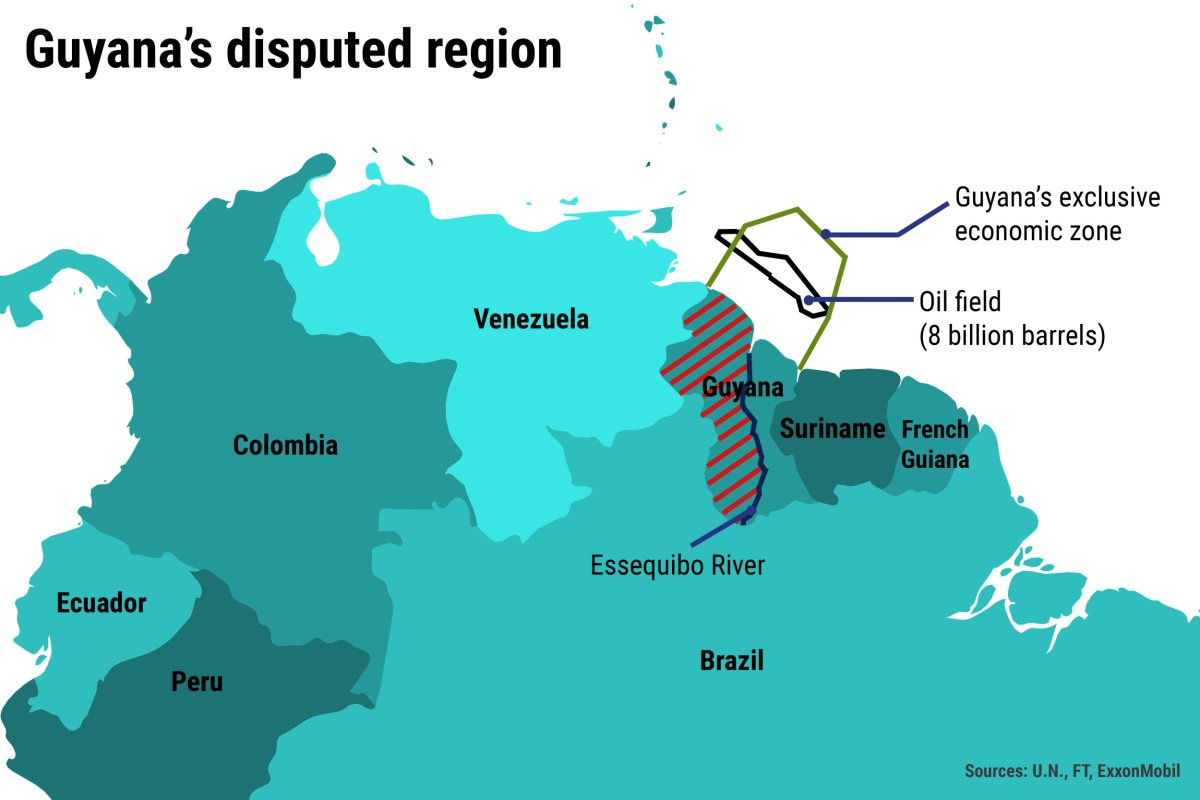
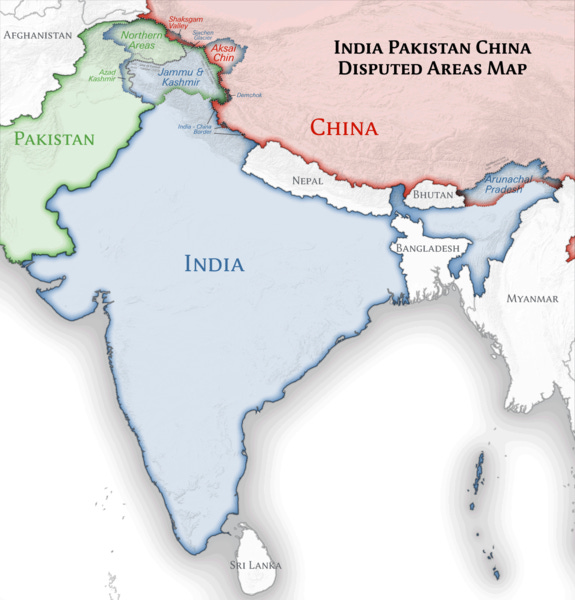

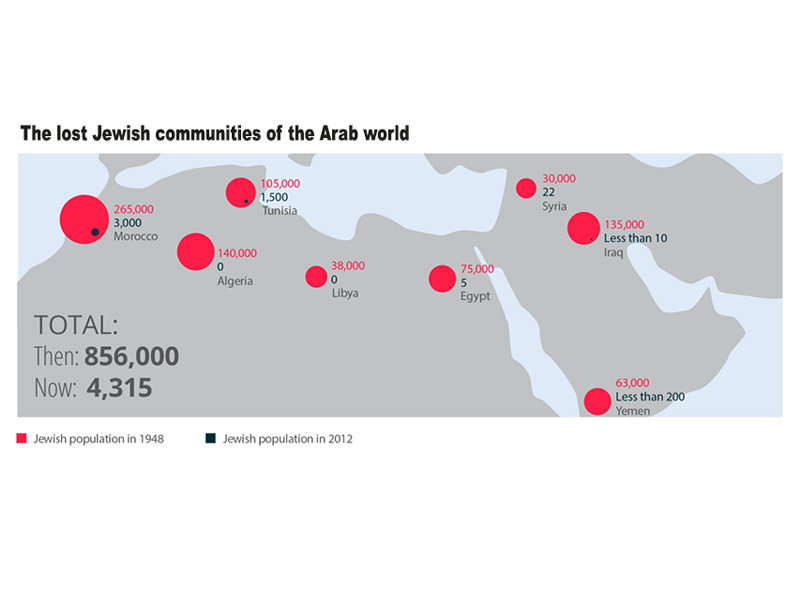

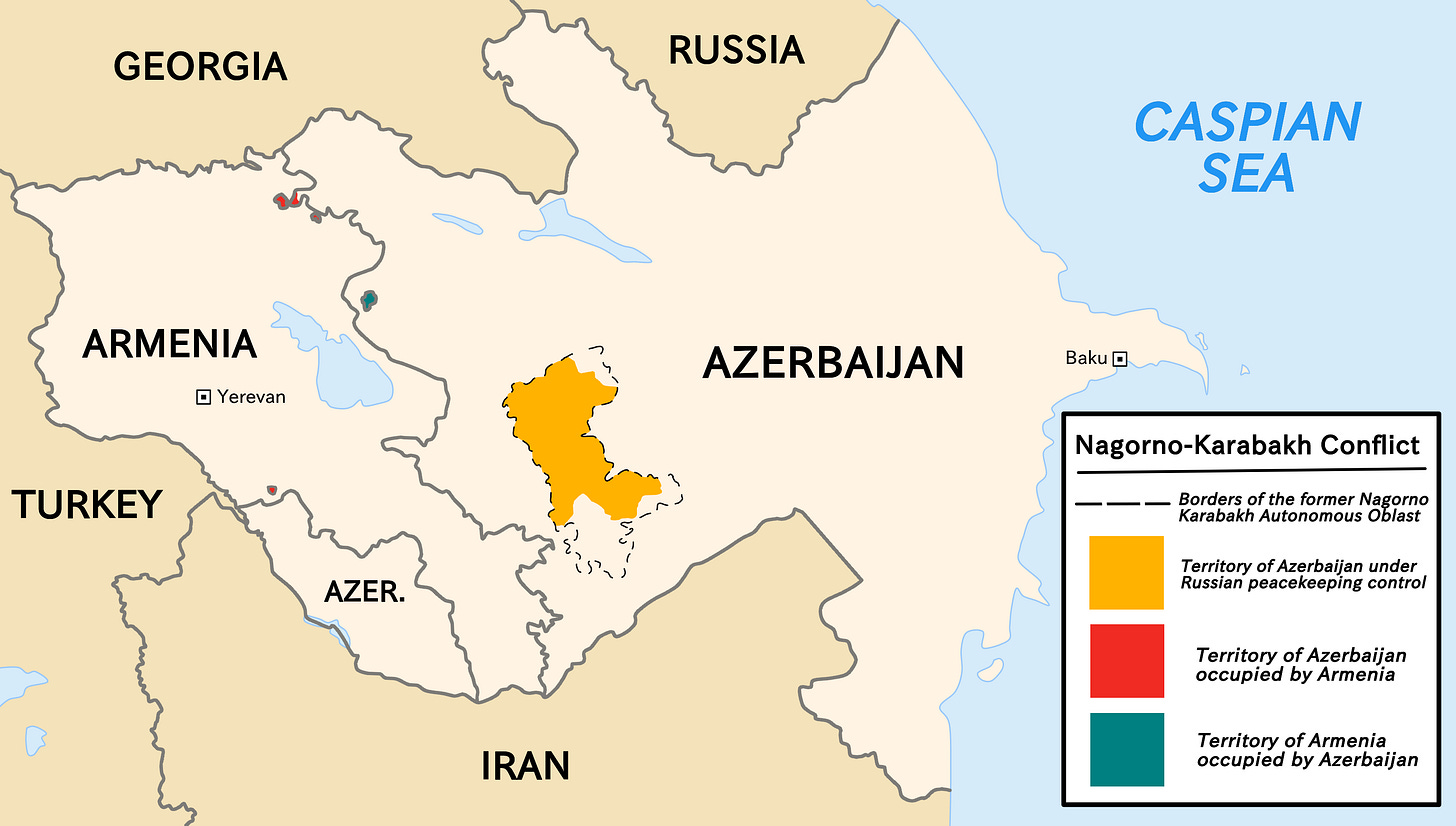
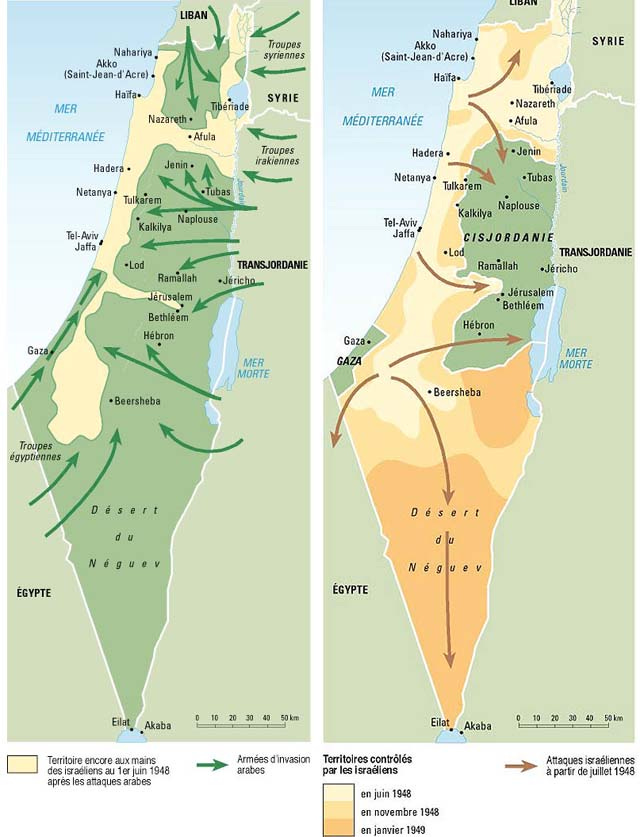



This is an absolute banger. Really well done!
This article and the comment section is wild.
Anyway, what’s the difference on this analysis between a hunter gatherer, a nomadic pastoralist (say, a plains Indian) and a rancher? Is it the building of fences? A claim of land ownership?
It doesn’t seem to me to be one of control, or productivity, or use. Large ranches frequently have very few fences, have a lower population density as would a hunter gatherer or group of pastoralists, less connection to land. It seems the ownership of a ranch is simply an artefact of the state and state power.